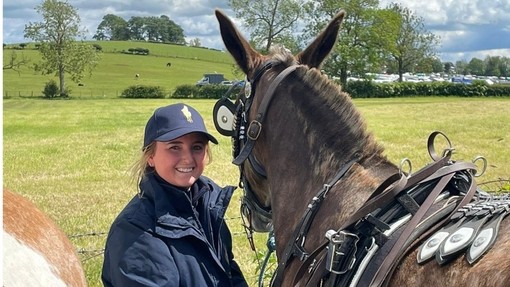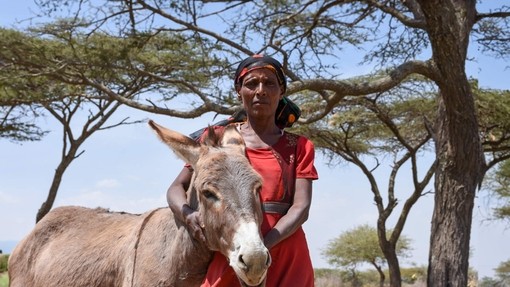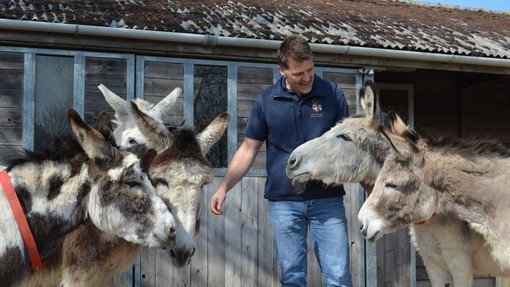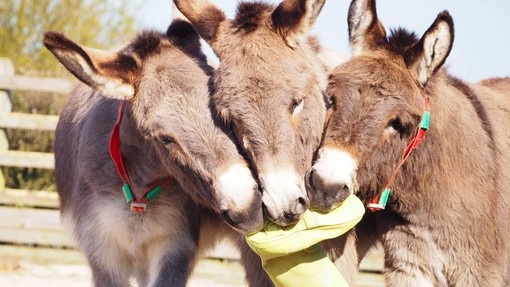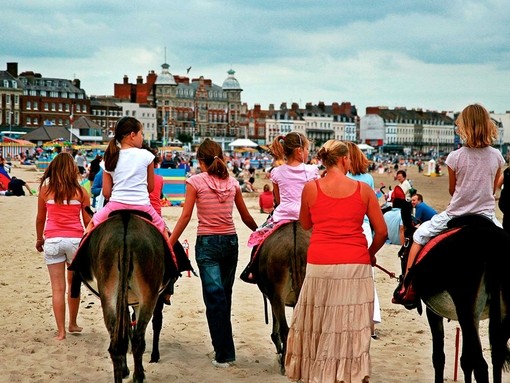
Protecting the welfare of working donkeys in tourism
We don’t condone the use of donkeys and mules in any form of tourism. We do, however, recognise that donkeys are an intrinsic part of the tourism industry in some locations. Whatever the context, animal welfare is key and must be a priority.
Why are donkeys and mules used in tourism?
Donkeys and mules are put to work in tourism all over the world, whether used as taxis, for treks or to carry luggage.
Donkeys are often preferred due to their calm nature, intelligence, and ability to navigate difficult terrain. Their walking pace matches that of humans, and they are easier to mount than other animals.
What challenges do the donkeys working in tourism face?
While each location will raise unique welfare issues, there are some common challenges that donkeys working in tourism face:
- Carrying overweight passengers
- Lack of access to shade, water, and rest
- Poor quality equipment (saddles and bridles)
- Ignored safety guidelines
- Long-distance travel in harsh conditions
Donkeys are sensitive and intelligent animals who naturally avoid showing distress. This leaves them vulnerable to being overworked and overloaded, and for their basic needs to be overlooked.
Where might I see donkeys working in tourism?
British beach donkeys
In the UK, beach donkeys have been a common sight at seaside resorts since 1780. The donkeys are used to give children and tourists rides along the beach.
People offering donkey beach rides must be licensed by the relevant Local Authority for the area. The Local Authority is responsible for inspections and ensuring that operators meet good welfare standards.
We have specific guidance on how to protect the welfare of beach donkeys on our website.
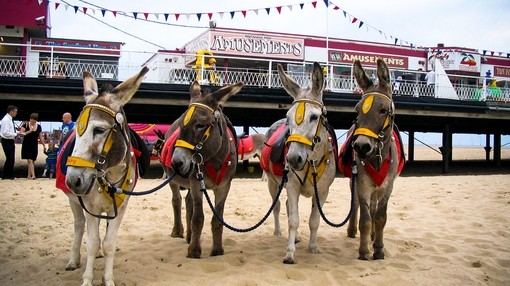
Mijas donkey taxis
In Mijas, Spain, donkey taxis have been a controversial tourist attraction since the 1960s. The donkeys are used to transport tourists across the town’s narrow and steep streets, either riding them directly or by pulled by carriages.
We have been working with Mijas Town Hall and donkey owners for many years on measures to improve donkey welfare at work and in rest periods, as well as on a weight limit for tourist taxis.
The current regulations have legal status and breaches can incur sanctions, such as losing the licence to provide any service with donkeys.
We are also part of a working group associated with the EU Platform on Animal welfare (Eurogroup for Animals) currently producing guidance for owners, regulators and the users of tourism services involving equines.
Donkeys in Santorini
In Santorini, Greece, donkey rides have been a controversial tourist attraction for decades. Due to the challenging terrain of the island, donkeys and mules have historically been essential for moving people and supplies from the coast to the elevated regions where most villages are located.
We have previously held talks with the Santorini government about the working conditions and practices of donkeys and mules on the island.
We are not able to enforce animal welfare regulations in Santorini. Instead, we encourage members of the public with concerns for the welfare of donkeys and mules to contact the local authorities (Veterinary Department and police).
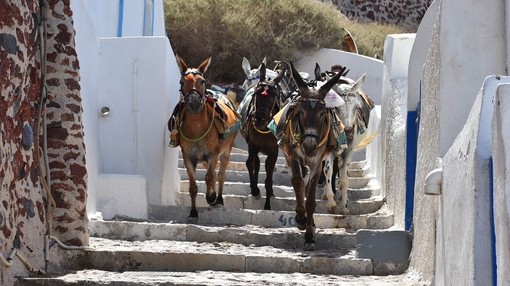
Donkey taxis in Rhodes
Donkey taxis in Rhodes are primarily found in the town of Lindos, where they help to transport tourists to the Acropolis archaeological site. The local geography is again a factor here, with steep terrain leading up to the visitor site.
We are not able to enforce animal welfare regulations in Rhodes, but would encourage members of the public with concerns for the welfare of donkeys and mules to contact the local authorities.
What can I do to help donkeys working in tourism?
When visiting areas where donkeys and mules are used in tourism, consider the following:
Access to water
Do the animals have fresh water available and accessible?
Access to shelter
Is there shelter to protect the animals from the sun or rain while they are resting?
Owner behaviour
Is the owner or handler physically mistreating the animals?
Observable wounds
Are the animals free of any open wounds, or signs of injury? Is the equipment such as the saddle, harness or head collar causing harm?
Weight
Are the animals being asked to carry an acceptable weight?
Put yourself in their hooves
In 2019 we partnered with the Cruise Lies International Association to produce a video asking visitors to Santorini to put themselves ‘in the hooves’ of the donkeys working in the local tourism industry.
This video is still available to view here and contains a useful way of approaching donkeys working in the tourism and leisure industry across the world.
Share this page
Tags
- Blog

